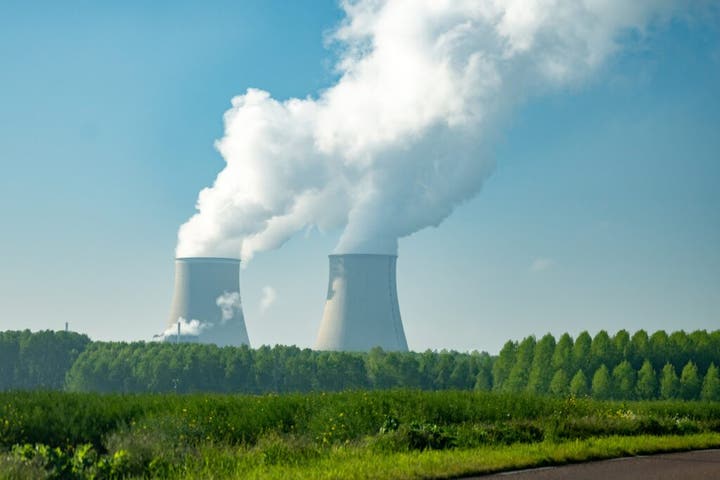Science
Big Tech Firms Invest $863 Million in Nuclear Fusion Revolution

Silicon Valley’s leading technology firms have made a significant investment in the future of energy with a combined funding of **$863 million** for nuclear fusion company **Commonwealth Fusion Systems (CFS)**. Announced on **August 28, 2023**, this funding round, known as Series B2, marks a pivotal moment in the fusion energy landscape, attracting major players such as **Nvidia**, **Google**, and **Bill Gates’s Breakthrough Energy Ventures**.
The oversubscribed funding round saw participation from a diverse group of investors, including **Laurene Powell Jobs’s Emerson Collective**, **Khosla Ventures**, **Lowercarbon Capital**, and **Tiger Global**. New contributors also include **Morgan Stanley’s MS Counterpoint Global** and billionaire investor **Stanley Druckenmiller**, along with a consortium of twelve Japanese firms led by **Mitsubishi** and **Mitsui**.
CFS co-founder and CEO **Bob Mumgaard** emphasized the significance of this investment during a press conference, stating, “Between the investment, the execution, the science, the transparency, the collaboration, it’s really showing that CFS is the leader here inside the fusion ecosystem.”
Revolutionizing Energy Production
This funding round stands as one of the largest deep tech investments since CFS’s previous **$1.8 billion** funding round in 2021. With nearly **$3 billion** raised to date, CFS now accounts for approximately one-third of all capital invested in private fusion companies worldwide. The technology behind nuclear fusion generates electricity by fusing atomic nuclei, replicating the processes that power the sun.
Mumgaard describes this innovative technology as creating a “star in a jar.” Unlike traditional nuclear power plants that rely on nuclear fission, fusion combines atoms to create energy while producing significantly less radioactive waste. **Laurene Powell Jobs** highlighted the potential of fusion, saying, “To meet the challenges of this century, we need energy that is abundant, clean, and accessible everywhere. That’s what fusion offers.”
The U.S. Department of Energy indicates that fusion technology promises a much higher energy output than fission, with the added advantage of generating smaller quantities of shorter-lived radioactive waste. Despite its promise, fusion technology remains under development and is still several years from commercial viability.
CFS plans to utilize the new funding to finalize its **Sparc** demonstrator plant, aiming for operational status by **2026** and net energy production by **2027**. Additionally, the company intends to develop its **ARC** commercial plant in Virginia, targeting operation by the early **2030s**.
Growing Demand for Energy Solutions
The substantial investments from these tech giants reflect an increasing concern over energy demands driven by the expansion of artificial intelligence and data centers. **Google** has already committed to purchasing **200 megawatts** of electricity from CFS’s ARC plant once it becomes operational, representing half of the plant’s total output. Similarly, **Microsoft** has made arrangements with competitor **Helion**, while **Amazon** founder **Jeff Bezos** has personally invested in **General Fusion**, a Canadian firm.
Mumgaard has recently called for more federal support for fusion development, particularly in light of China’s advancements in the field. He pointed out China’s establishment of the state-owned **China Fusion Energy Co.**, backed by **$2.1 billion** in registered capital. Chinese researchers have reportedly achieved significant breakthroughs, including a record-setting performance from their **EAST** fusion generator. Mumgaard noted, “That is an example of the Chinese system saying, ‘We want fusion to happen. We are going to organize ourselves to do it. We’re going to put the people and capital behind it.’”
While the U.S. boasts a robust innovation ecosystem, Mumgaard cautioned that without comparable commitment and resources, the country risks losing its competitive edge in this critical energy technology race.
CFS positions itself as a leader in the global fusion sector, confident in American innovation capabilities while acknowledging the necessity for substantial capital investments to remain competitive. The growing momentum in the fusion industry is indicative of the recognition from both government and private sectors of its potential to deliver abundant and clean energy. Traditional nuclear fission companies are also advancing, with firms like **Kairos Power**, **X-energy**, and **TerraPower**—founded by Bill Gates—developing next-generation small modular reactors, showcasing broad industry confidence in nuclear power’s future role.
-

 Technology5 months ago
Technology5 months agoDiscover the Top 10 Calorie Counting Apps of 2025
-

 Health3 months ago
Health3 months agoBella Hadid Shares Health Update After Treatment for Lyme Disease
-

 Health3 months ago
Health3 months agoErin Bates Shares Recovery Update Following Sepsis Complications
-

 Technology4 months ago
Technology4 months agoDiscover How to Reverse Image Search Using ChatGPT Effortlessly
-

 Technology1 month ago
Technology1 month agoDiscover 2025’s Top GPUs for Exceptional 4K Gaming Performance
-

 Technology2 months ago
Technology2 months agoElectric Moto Influencer Surronster Arrested in Tijuana
-

 Technology5 months ago
Technology5 months agoMeta Initiates $60B AI Data Center Expansion, Starting in Ohio
-

 Technology5 months ago
Technology5 months agoRecovering a Suspended TikTok Account: A Step-by-Step Guide
-

 Health4 months ago
Health4 months agoTested: Rab Firewall Mountain Jacket Survives Harsh Conditions
-

 Lifestyle5 months ago
Lifestyle5 months agoBelton Family Reunites After Daughter Survives Hill Country Floods
-

 Technology4 months ago
Technology4 months agoHarmonic Launches AI Chatbot App to Transform Mathematical Reasoning
-

 Technology3 months ago
Technology3 months agoUncovering the Top Five Most Challenging Motorcycles to Ride


















